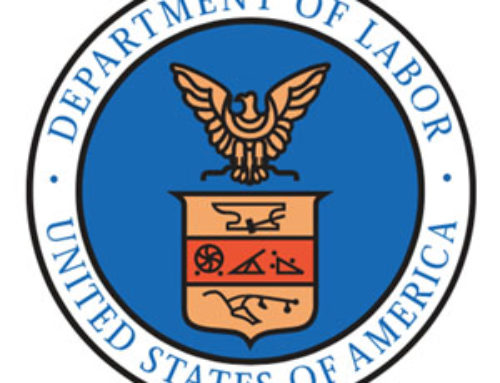Attorneys advise growers to ensure their workers take rest breaks so they don’t fall foul of state and federal regulations. But workers don’t always want to stop work, particularly if they’re being paid piece rate.
By law, workers must be allowed a paid 10-minute rest break for every four hours they work.
Rick Anderson, corporate administrator with Sakuma Brothers Farms in Burlington, Washington, which was sued two years ago over claims of violating rest-break regulations, said it has made rest breaks mandatory, on the advice of legal counsel. All the company’s workers are paid a piece rate that is designed to compensate them for everything they do during the workday, including taking breaks.
“Everybody said it wouldn’t work, but it does,” he said during the annual labor conference presented by the Washington Farm Labor Association in Wenatchee last winter. “We blow a whistle, and when the last guy’s out of the field, then the clock starts.”
After ten minutes employees can return to work.
Anderson acknowledged there was some resistance at first, but said it’s become self-policing. It takes less than two minutes to clear a field. If a worker’s slow to come out of the field, the others will tell that person to move faster because it’s impacting them.
“It fell into place pretty quickly,” he said. “We didn’t get that much push back. However, you have to keep it up. If you let your guard down, they’ll slip back in a hurry.”
Schedule
Julie Loreth, human resource manager with McDougall and Sons, based in Wenatchee, Washington, said the company has had mandatory 15-minute rest breaks (five minutes longer than required by law) for about five years.
Crew leaders have pocket-sized handbooks, which contain a schedule showing when the workers need to take rest and lunch breaks based on the time they start work in the morning.
The company’s regional managers know when they go out to an orchard what time the crews should be taking breaks, and supervisors face disciplinary action if their crews are working when they shouldn’t be.
Safety
A grower attending the conference asked how it’s possible to enforce rest breaks when there’s a shortage of workers. If you need 80 people and only 40 show up, how can you enforce rules and regulations without risking them going to work for a neighbor, leaving with the crop unpicked?
Anderson suggested explaining to workers why they need to take a break. One reason is it’s a safety issue.
“You want people to take a rest break for their own safety, and it helps improve their productivity,” he said.
He’s found that workers who take breaks come back refreshed whereas those who don’t tend to progressively slow down.
Loreth said rules are not easy to enforce. When the company began hiring workers through the H-2A guest worker program, it enforced the same policies for all its workers.
“Did we lose workers to neighbors? Absolutely,” she said. “But we took the position that we have to have these policies in place.”
Over time, workers began to know and accept that McDougall’s has those policies and that they’re designed to make sure workers are happy and treated well.
Loreth said the same policies apply to hourly and piece-rate workers and are enforced consistently across all its orchards. If workers on one ranch have to take breaks, while workers on another don’t, it will cause problems.
The most resistance to breaks comes from tractor drivers and spray applicators, who don’t want to remove their protective equipment. Most pickers welcome the chance to get a drink of water and use the bathroom and find they can work harder after taking a break, she said.
Another grower asked Anderson if workers were reluctant to take breaks for fear that their partially filled picking buckets might be stolen. He said that’s not been an issue, but the company did increase the number of supervisors it employs so that they’re managing much smaller crews. “Having a supervisor’s eye on it helps quite a bit,” he said. •






Leave A Comment